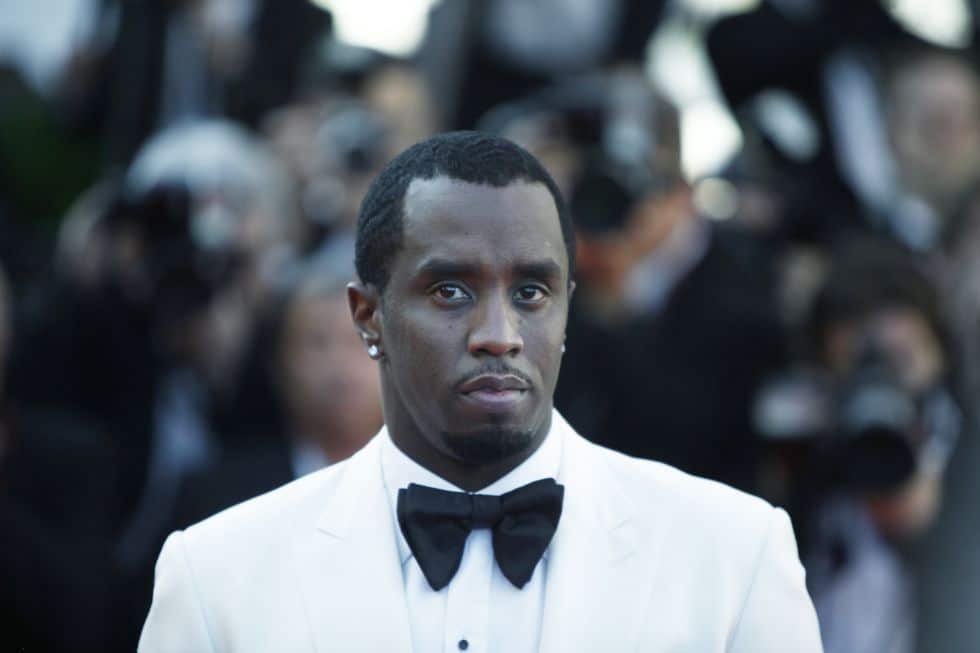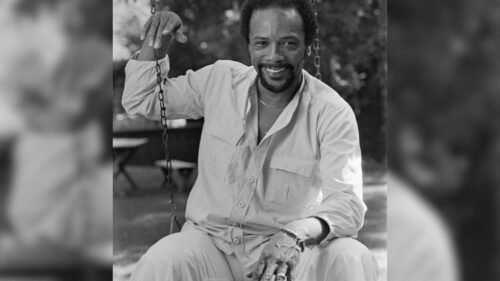Sean “Diddy” Combs will stand trial on federal sex trafficking and racketeering charges on May 5. He may or may not be guilty of the several crimes for which he is charged. But his case, like many of those before him, offers a revealing mirror. In it, we see the tensions of two powerful cultural reckonings: #MeToo and Black Lives Matter (BLM) intersect in the body and biography of one man. Whether that intersection yields justice, contradiction or further division will depend not only on evidence but on how honestly society can confront its own myths, prejudices and sense of piety.
A hugely successful black man with colossal earnings, a storied career, a following of millions and limitless respect suddenly falls foul of the law. He is indicted for sex trafficking, transporting individuals across state lines for the purposes of prostitution, racketeering and other federal charges. If convicted, he could face decades in prison — the most serious charges carrying a maximum sentence of life imprisonment. Remind you of anybody?
Black celebrity pastiche
Last September, Combs, the musician-cum-music mogul, was accused in a three-count indictment of having used his billion-dollar business empire to abuse, threaten and traffic women in order to “fulfill his sexual desires.” He was denied bail and ordered to remain in custody. He denied all allegations.
It feels like a dispiriting pastiche. The names change — Michael Jackson, Mike Tyson, R. Kelly, Bill Cosby — but the pattern remains hauntingly familiar. A black man ascends to global superstardom, achieving wealth, prestige and, sometimes, cultural influence unmatched by his white contemporaries, only to be dragged down by accusations of criminal and moral transgression. In many cases, including that of 54-year-old Combs, now facing even more recent allegations culminating in a superseding indictment, the legal and cultural forces surrounding the individuals seem to involve more than just whether or not they are guilty: They invite us to stare at the fraught intersection of racial and gender politics in American life.
The dilemma of black success
In a broader sense, the cases of these famous black men and Combs’s in particular pose a deeply troubling dilemma. Not the American dilemma described in an eponymous study in 1944, but a new version that poses an impossible choice, not merely about the guilt or innocence of these men, but in whether their very success creates a tension in American culture.
Their status as cultural icons, combined with their blackness and gender, often leads to a distorted reckoning, where their very ascent is seen as an affront to the social order. Combs’s trial, then, is not just about legal consequences but about how America grapples with the uncomfortable reality of black success — and how quickly that success can turn into perceived transgression.
The charges against Combs, which include trafficking, coercion and operating a criminal enterprise, are grave and properly demand careful legal inspection and adjudication. Yet the surrounding discourse bears an unnerving resemblance to the moral dramas witnessed in the cases of Jackson et al. As with those cases, the spectacle of an idol with feet of clay is being played out in the media. These kinds of cases are manna for them: They can elicit voyeuristic satisfaction among consumers. The moral tone is familiar: Less a function of law enforcement than of culture enforcing its own unwritten norms, with African-American men disproportionately cast in the role of transgressors.
At issue is not whether Combs is guilty, but whether his public reckoning reflects a consistent application of justice or a culturally overdetermined and so disproportionate response shaped by America’s unresolved anxieties about race, power and masculinity. In other words, we’re usually left to ponder what exactly is being pursued: justice or revenge?
#MeToo vs. BLM
#MeToo and BLM are social movements that have helped redirect the zeitgeist. For the most part, they complement each other. But only for the most part: There’s a space where the legacy of white supremacy and the evolution of feminist critique collide, often with conspicuously successful black men as the flashpoint.
#MeToo, of course, has revolutionized the way societies regard sexual misconduct, shifting focus from the individual actions of men to the cultural arrangements that allow abuse to thrive. But inside that broader analysis, questions of race are often marginalized. When white men are accused, the script usually centers on individual moral failing or psychological problems. When black men are implicated, the narrative can take on a different meaning and one that not-so-subtly reinforces age-old tropes of hypersexuality, savagery and lack of self-control. These stereotypes stretch back to slavery and Reconstruction and were reanimated during the Jim Crow era to justify lynching and segregation.
Even now, when legal structures claim neutrality, the popular imagination still operates with encoded biases. In the Combs case, the accusations (sex trafficking, violence, coercion) seem to awaken these lingering myths. Combs’ persona as a brash, extravagant mogul flaunting wealth, power and women is now being reframed as part of a symptom of his predatory predilections. Historian Ed Guerrero has written on how the media’s framing of cases like Combs’s both reflects and perpetuates historic biases, contributing to a cycle that affects the lives and careers of black men in the public eye.
Whether or not the charges are substantiated, the imagery evokes a familiar template. The ancient idea of the droit du seigneur — a feudal lord’s alleged right to have sex with a vassal’s bride — has modern echoes in today’s celebrity culture, where power can and, as we know, does enable and abuse. But its application isn’t consistent: It becomes racially charged when the “lord” in question is a black man who defies every expectation set by a white-dominated society.
Black success is conditional
In one of my books, The Destruction and Creation of Michael Jackson, I argue that Jackson’s very existence challenged categories of race, gender and even age, and that the cultural and media backlash he suffered was not just about his actions, but about his symbolic or even imagined transgressions. In a similar vein, Combs, who has reinvented himself several times (Puff Daddy, Diddy, Love), amassed a fortune from music, fashion and liquor empires, and cultivated a public identity of invulnerability. Forbes estimated his wealth at $90 million last year. He, perhaps more than any of the other figures mentioned so far, has pushed the boundaries of what a black man could legitimately represent.
His 2023 civil case was settled for an undisclosed sum amid accusations of violent abuse and descriptions of parties known as “freak offs,” which went on for days and involved the coercion of women into sex. It came after years of whispers, lawsuits and accusations. The case led to more allegations and denials culminating, we anticipate, in May. This may represent a legal reckoning, but it also invites reflection on how his public identity may have made him an irresistible target.
None of this is to exonerate wrongdoing. R. Kelly’s conviction, Cosby’s civil suits and imprisonment (later overturned), and Tyson’s time served for rape all involved credible accusations and, in some cases, overwhelming evidence. Yet the broader pattern invites interrogation. Is America more eager to believe the worst about black men? And does the celebration of their success carry an unspoken caveat: that they must eventually be humbled, exposed or destroyed?
BLM arose in response to state-sanctioned violence, racial profiling and a justice system that often discounts black lives. While its origins lay in police brutality, its implications stretch into every institutional domain, including the courts, the media and public opinion. The movement highlighted the inescapable fact that racism is not just about overt acts of hatred, but about the cumulative effect of double standards, implicit biases and institutional neglect. In this light, the Combs case must be understood not only in terms of personal accountability but also as part of the larger cultural script that BLM sought to disrupt.
That script tells us this: Black success is conditional. It is tolerated but never fully embraced; admired, yet never quite trusted. And when a successful black figure is accused, the rush to judgment is faster, the appetite for spectacle keener and the desire for ruin more intense.
Combs’s story isn’t just about his alleged crimes: It’s about the kinds of narratives society is prepared to believe. His destiny will become part of a historical arc that has often positioned the successful black man as a threat once he ascends too far. Whether in sports, entertainment or public life, the American imagination appears more comfortable with black male success when it is controlled; when it can be reclaimed or punished.
[Lee Thompson-Kolar edited this piece.]
The views expressed in this article are the author’s own and do not necessarily reflect Fair Observer’s editorial policy.
Support Fair Observer
We rely on your support for our independence, diversity and quality.
For more than 10 years, Fair Observer has been free, fair and independent. No billionaire owns us, no advertisers control us. We are a reader-supported nonprofit. Unlike many other publications, we keep our content free for readers regardless of where they live or whether they can afford to pay. We have no paywalls and no ads.
In the post-truth era of fake news, echo chambers and filter bubbles, we publish a plurality of perspectives from around the world. Anyone can publish with us, but everyone goes through a rigorous editorial process. So, you get fact-checked, well-reasoned content instead of noise.
We publish 3,000+ voices from 90+ countries. We also conduct education and training programs
on subjects ranging from digital media and journalism to writing and critical thinking. This
doesn’t come cheap. Servers, editors, trainers and web developers cost
money.
Please consider supporting us on a regular basis as a recurring donor or a
sustaining member.
Will you support FO’s journalism?
We rely on your support for our independence, diversity and quality.








Comment